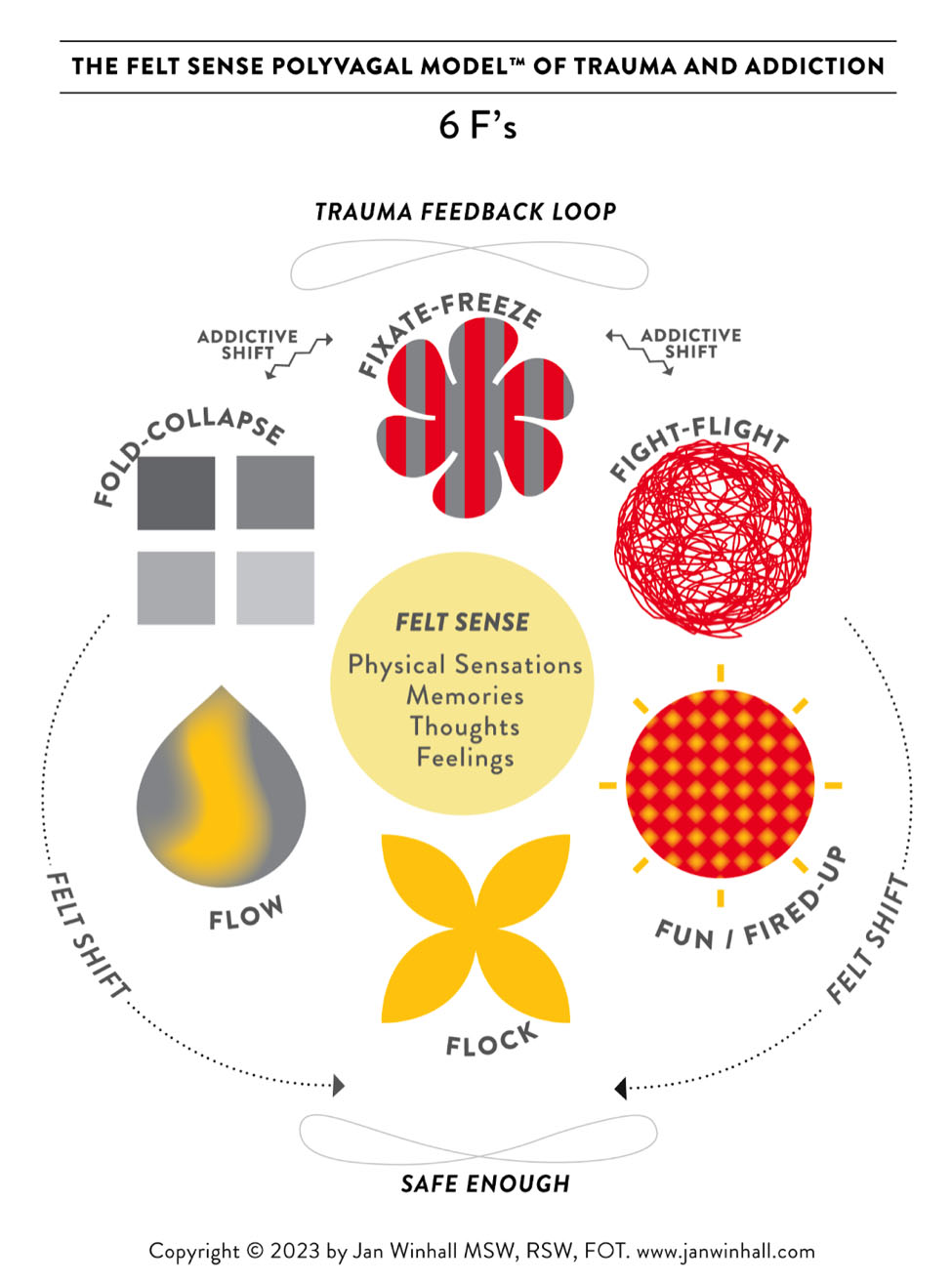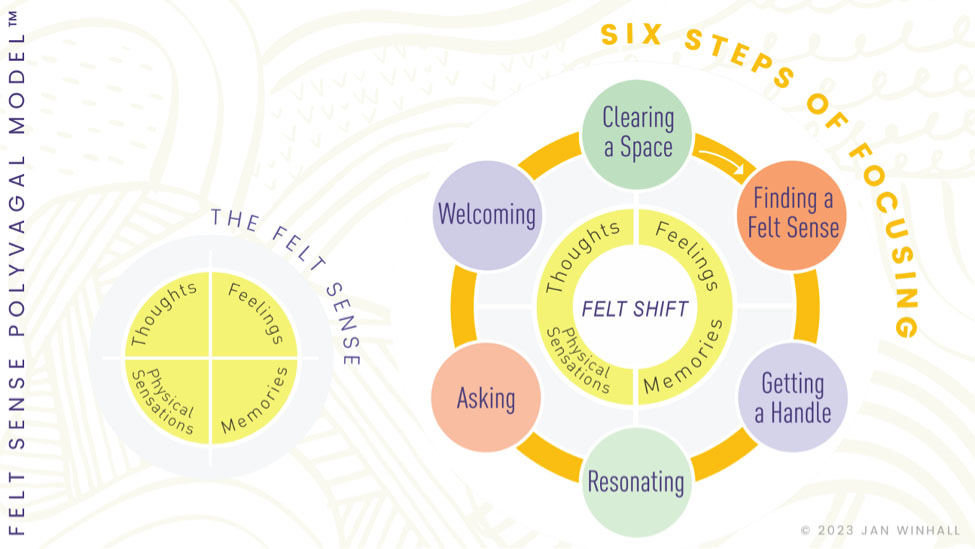Bringing Body Wisdom to Any Modality
-
-
Jan Winhall
Advances in neuroscience mean most general therapists understand the importance of working with the body, especially at the intersection of addiction and trauma. But how many of us lack confidence when inviting clients to safely connect with their embodied experience? Ahead of a PESI UK training in Autumn 2023, Jan Winhall introduces her Felt Sense Polyvagal Model – a foundational framework based on ‘Six Fs’ that integrates insights from Gendlin and Porges, and uses playful imagery to help clients track their own autonomic nervous systems.

FREE Felt Sense Polyvagal Model™ Workshop
With Jan Winhall, MSW, FOT | 5-6 October 2023
I’ve been a trauma therapist for 45 years. Back in the Eighties it was feminist therapists who were exploring the connection between trauma and the body. Now the field is blossoming as neuroscience research is helping us deepen our understanding of the vital role the body plays in healing trauma. But how does that translate into the therapy room?
Many therapists feel overwhelmed. They ask me, “How do I learn more about neuroscience? How do I use this knowledge to help my clients connect with their bodies?” It can be scary to invite a trauma survivor to connect into deep experience if, as a therapist, you do not feel sure-footed. It needs to be a gentle, well-considered path.
The Felt Sense Polyvagal Model (FSPM) equips therapists with a step-by-step guide for bringing bodywork into any therapeutic modality. The model integrates Gendlin’s Focusing/Felt Sense psychotherapy and Porges’ Polyvagal Theory. These two embodied processes of interoception (felt sense) and neuroception (polyvagal) form the framework. By teaching ourselves and our clients how to tap into these processes, we harness the body’s natural healing capacity. We tap into body wisdom.
To teach neuroception, our body’s safety detector, I created a graphic model of the FSPM. Clients learn how to track and regulate their autonomic nervous system through playful imagery. This process appeals to bottom-up, right hemisphere processing and enhances clients’ capacity for embodied learning.

The 6 F’s: Three main autonomic nervous system (ANS) pathways: Flock (ventral), Fight/Flight (sympathetic), Fold (dorsal).
1. Flock—ventral state of safety and social engagement. This state promotes health, growth, and restoration.
2. Fight/Flight—sympathetic response. Flight is a state of fear and anxiety. In this state, the body mobilises to run and escape. Fight is a mobilising state of anger.
3. Fold—dorsal response. Fold is a collapse of the ANS into a dissociative state when the sympathetic response is ineffective. This is the path that Porges identified as part of Polyvagal Theory.
Bodies also function in blended states, when the ANS is experiencing more than one state. They include: Fixate/Freeze (sympathetic/dorsal), Flow (Dorsal, ventral), Fun/Fired Up (ventral/sympathetic).
4.Fixate (Fight/Flight and Fold). Fixate is the blended freeze state. It is a combination of sympathetic mobilisation and dorsal immobilisation. Addictions occur here as state regulation strategies, attempts to shift between Flight/Fight and Fold.
5. Flow (Flock and Fold). Flow is a blended state between ventral and dorsal. It is a state of safety with stillness.
6. Fun/Fired Up (Flock and Fight/Flight). Fun is the blended state between ventral and sympathetic, a state of playfulness. Fired Up, an impassioned, activated state, is another blending of ventral and sympathetic.
To teach interoception, we use Gendlin’s six-step process of Felt Sensing.

When we have assessed that it is ‘safe enough’ we gently invite our client to bring attention into the centre of the body. Each focusing step brings deeper embodied awareness. As therapy progresses, clients learn how to work with traumatic experiences through regulating their nervous system (neuroception) and working with their felt sense experience (interoception).
Over many decades of working with The Felt Sense Polyvagal Model I have come to believe that the journey into embodiment is an essential healing ingredient. Harnessing the natural power of body wisdom liberates suffering, freeing our clients to live deeply nourishing lives; the lives they deserve.